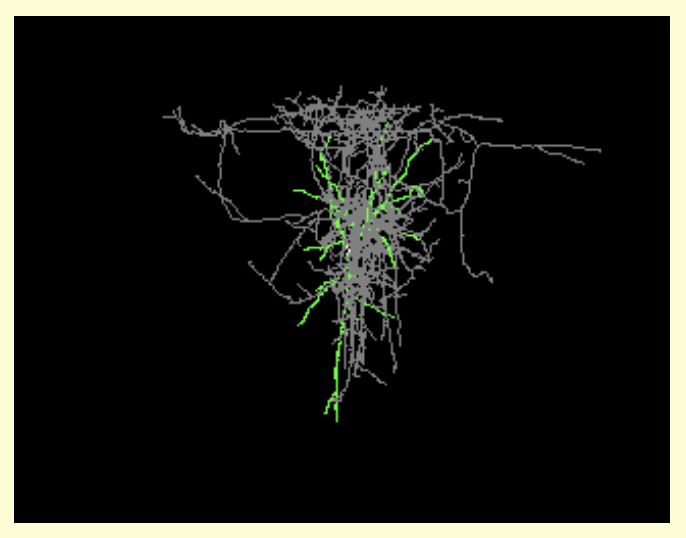URL: http://www.cdc.gov/nchs/lsoa.htm
Proper Citation: Longitudinal Studies of Aging (RRID:SCR_013355)
Description: A data set of a multicohort study of persons 70 years of age and over designed primarily to measure changes in the health, functional status, living arrangements, and health services utilization of two cohorts of Americans as they move into and through the oldest ages. The project is comprised of four surveys: * The 1984 Supplement on Aging (SOA) * The 1984-1990 Longitudinal Study of Aging (LSOA) * The 1994 Second Supplement on Aging (SOA II) * The 1994-2000 Second Longitudinal Study of Aging (LSOA II) The surveys, administered by the U.S. Census Bureau, provide a mechanism for monitoring the impact of proposed changes in Medicare and Medicaid and the accelerating shift toward managed care on the health status of the elderly and their patterns of health care utilization. SOA and SOA II were conducted as part of the in-person National Health Interview Survey (NHIS) of noninstitutionalized elderly people aged 55 years and over living in the United States in 1984, and at least 70 years of age in 1994, respectively. The 1984 SOA served as the baseline for the LSOA, which followed all persons who were 70 years of age and over in 1984 through three follow-up waves, conducted by telephone in 1986, 1988, and 1990. The SOA covered housing characteristics, family structure and living arrangements, relationships and social contracts, use of community services, occupation and retirement (income sources), health conditions and impairments, functional status, assistance with basic activities, utilization of health services, nursing home stays, and health opinions. Most of the questions from the SOA were repeated in the SOA II. Topics new to the SOA II included use of assistive devices and medical implants; health conditions and impairments; health behaviors; transportation; functional status, assistance with basic activities, unmet needs; utilization of health services; and nursing home stays. The major focus of the LSOA follow-up interviews was on functional status and changes that had occurred between interviews. Information was also collected on housing and living arrangements, contact with children, utilization of health services and nursing home stays, health insurance coverage, and income. LSOA II also included items on cognitive functioning, income and assets, family and childhood health, and more extensive health insurance information. The interview data are augmented by linkage to Medicare enrollment and utilization records, the National Death Index, and multiple cause-of-death records. Data Availability: Copies of the LSOA CD-ROMs are available through the NCHS or through ICPSR as Study number 8719. * Dates of Study: 1984-2000 * Study Features: Longitudinal * Sample Size: ** 1984: 16,148 (55+, SOA) ** 1984: 7,541(70+, LSOA) ** 1986: 5,151 (LSOA followup 1) ** 1988: 6,921 (LSOA followup 2) ** 1990: 5,978 (LSOA followup 3) ** 1994-6: 9,447 (LSOA II baseline) ** 1997-8: 7,998 (LSOA II wave 2) ** 1999-0: 6,465 (LSOA II wave 3) Link: * LSOA 1984-1990 ICPSR: http://www.icpsr.umich.edu/icpsrweb/ICPSR/studies/08719
Abbreviations: LSOA, LSOAs
Synonyms: LSOA - Longitudinal Studies of Aging, Longitudinal Studies of Aging (LSOAs)
Resource Type: data or information resource, data set
Keywords: health, functional status, living arrangement, health services utilization, late adult human, american, longitudinal, assisted living, chronic disability, chronic illness, disability, health care, health care service, illness, independent living, medicare, mortality rate, supportive services, mortality, survey, behavior, interview, housing, demographic, social, economic, middle adult human
Expand Allis listed by |
Inter-university Consortium for Political and Social Research (ICPSR) |
is related to |
|
has parent organization |
We found {{ ctrl2.mentions.total_count }} mentions in open access literature.
We have not found any literature mentions for this resource.
We are searching literature mentions for this resource.
Most recent articles:
{{ mention._source.dc.creators[0].familyName }} {{ mention._source.dc.creators[0].initials }}, et al. ({{ mention._source.dc.publicationYear }}) {{ mention._source.dc.title }} {{ mention._source.dc.publishers[0].name }}, {{ mention._source.dc.publishers[0].volume }}({{ mention._source.dc.publishers[0].issue }}), {{ mention._source.dc.publishers[0].pagination }}. (PMID:{{ mention._id.replace('PMID:', '') }})
A list of researchers who have used the resource and an author search tool
Find mentions based on location

{{ ctrl2.mentions.errors.location }}
A list of researchers who have used the resource and an author search tool. This is available for resources that have literature mentions.
No rating or validation information has been found for Longitudinal Studies of Aging.
No alerts have been found for Longitudinal Studies of Aging.
Source: SciCrunch Registry





